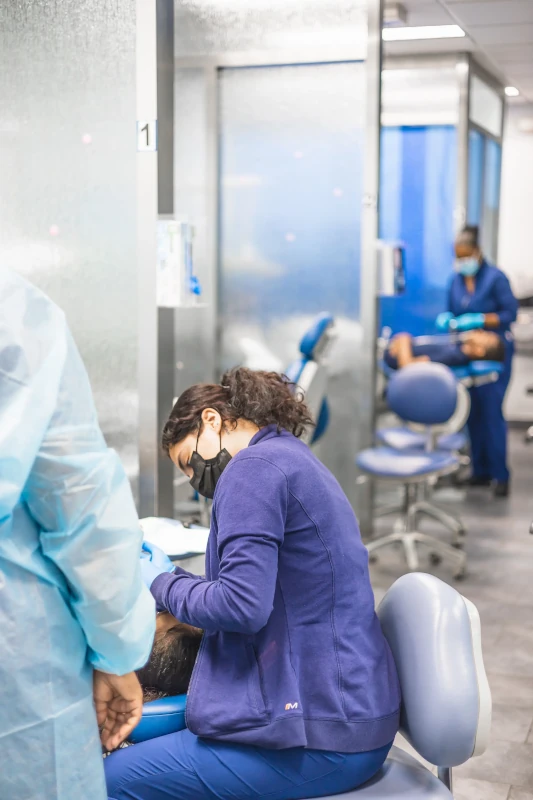Post
A Deep Dive into Dental Cleanings: What Happens, How Frequently Do You Need One, and More
The work you put in every day to keep your smile shiny does make a difference: brushing after every meal, flossing daily, and visiting the dentist in Washington Heights, NYC, once or twice a year for a dental cleaning keeps plaque buildup at bay, preventing issues such as cavities or gum disease.
Dental cleanings are a simple treatment that can be conducted in a single appointment, often under one hour. However, it can make a huge difference for your smile.

What Is a Dental Cleaning?
Dental cleanings are essential to maintain healthy teeth and gums.
During it, a dental professional or hygienist will clean your teeth to remove bacteria, plaque, and tartar. They might also apply fluoride treatments or dental sealants, among other preventive procedures.
Plaque is a sticky film made of bacteria that forms on teeth. These bacteria feed on leftover foods and sugars and release acids in exchange, which can progressively erode dental enamel and irritate gums. Over time, plaque accumulation can result in gum recession and cavities, two highly damaging conditions.
Brushing your teeth can help remove plaque, but some is usually left behind, especially in difficult-to-reach places like between teeth. For that reason, regular dental cleanings are a must.
What Are the Benefits of Regular Dental Cleanings?
Besides preventing oral health issues like cavities and gum disease, getting dental cleanings regularly can have several benefits for you, including:
Better Overall Health
Healthcare professionals have long understood the connection between oral and overall health. Conditions caused by plaque accumulation, such as periodontitis, have been proven to be linked with dementia, heart disease, and stroke. Getting regular dental cleanings can lower the risk of these conditions.
Preventing Bad Breath
Hardened plaque and tartar can cause bad breath. Routine cleanings can help prevent halitosis by eliminating disease-causing microbes from teeth surfaces.
Reduced Overall Cost
Dental cleanings and other preventative dental care help avert problems before they arise. This can save you a lot of time, worry, and money in the long run.
For example, restoring a cavity with a small filling is more affordable than getting a customized crown. And removing decay on time avoids the need for root canals, which can be demanding. By visiting the dental office for regular cleanings, you can keep these issues at bay and prevent the need for costlier and more invasive treatments.
What Happens During a Dental Cleaning?
Often, patients fail to visit our dental offices regularly because they dislike going to the dentist.
Dental anxiety, the name for this condition, is more common than you may think: Between 50 and 80% of adults in the United States have some degree of dental anxiety, ranging from mild to severe.
If this is your case, speaking with your dentist directly is crucial, as we can find alternative practices to make this process easier for you. For example, we can walk you through a dental cleaning step-by-step, letting you know what to expect so you can prepare.
Oftentimes, dental cleanings entail these 6 steps:
- Oral Exam: The dental professional examines your mouth using a small mirror to check for signs of gum disease, cavities, or other oral issues.
- Scaling: Special tools (either manual scalers or ultrasonic instruments) are used to remove plaque and tartar buildup from the tooth surfaces and below the gumline.
- Polishing: After scaling, your teeth are polished with a gritty toothpaste using a high-powered electric brush. This step removes surface stains and smooths the teeth.
- Flossing: Your dental hygienist will floss your teeth to remove any debris between your teeth.
- Rinsing: You rinse your mouth to remove any remaining debris, often with a fluoride rinse.
- Fluoride Treatment: A fluoride treatment may strengthen your enamel and help prevent cavities.
We also provide dental sedation options if you need them. This allows you to sit in the dental chair, relaxed and ready to keep your grin shiny.
How Often Should You Get a Dental Cleaning?
According to the American Dental Association, teeth cleanings should be scheduled every six months. However, this frequency may vary depending on oral health needs.
Patients with a history of gum disease may benefit from quarterly cleanings, for example.
What’s the Difference Between a Dental Cleaning and a Periodontal Cleaning?
When a dental cleaning is performed to stop the progression or reverse the symptoms of gum disease, it is called a periodontal cleaning.
During this kind of deep cleaning, tartar and plaque accumulation are removed from above and below the gum line, down to the point where the tooth root, gum, and bone converge. It consists mainly of two practices:
- Scaling: This involves removing plaque and hardened tartar (calculus) from the surface of the teeth, especially below the gumline in the periodontal pockets. Dental professionals may use manual instruments, ultrasonic tools, or both.
- Root Planing: After scaling, the roots of the teeth are smoothed to eliminate rough areas where bacteria can reattach. Smoother root surfaces help the gums reattach to the teeth and promote healing.
However, deep or periodontal cleanings are only reserved for mild to moderate periodontitis patients. People who undergo it require local anesthesia to numb their gums during the procedure.
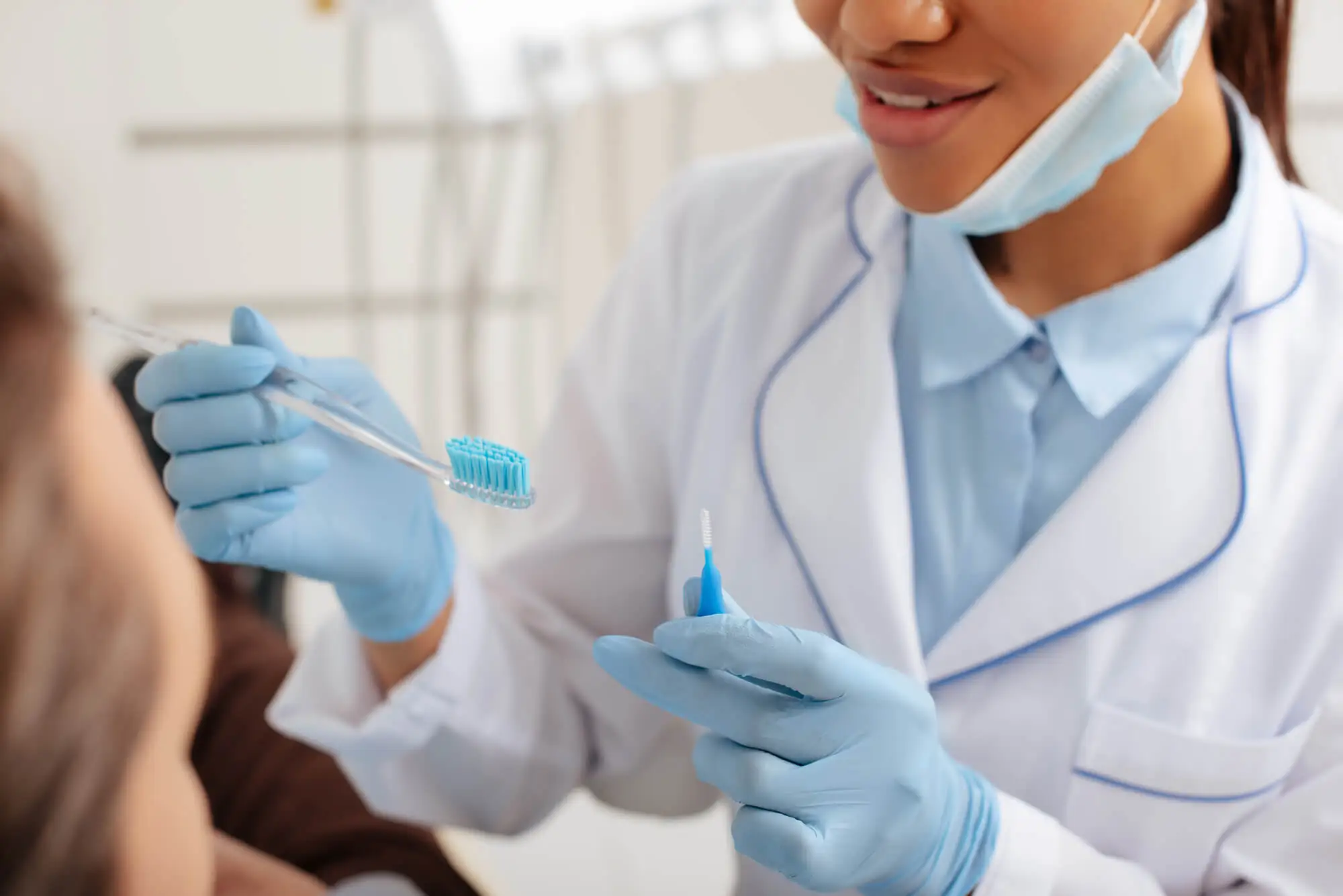
What Other Preventive Treatments May a Dentist Suggest?
Depending on your unique oral health needs, your dentist may suggest complementing your oral cleaning with other dental sealants or fluoride treatments.
Dental sealants are cover-like caps placed on the top of back teeth (premolars or molars) with deep grooves or crevices. It’s easy for bacteria to accumulate in these areas, so by keeping them covered, you can help prevent cavities.
On the other hand, fluoride treatments help to strengthen your enamel and lower your risk of developing cavities.
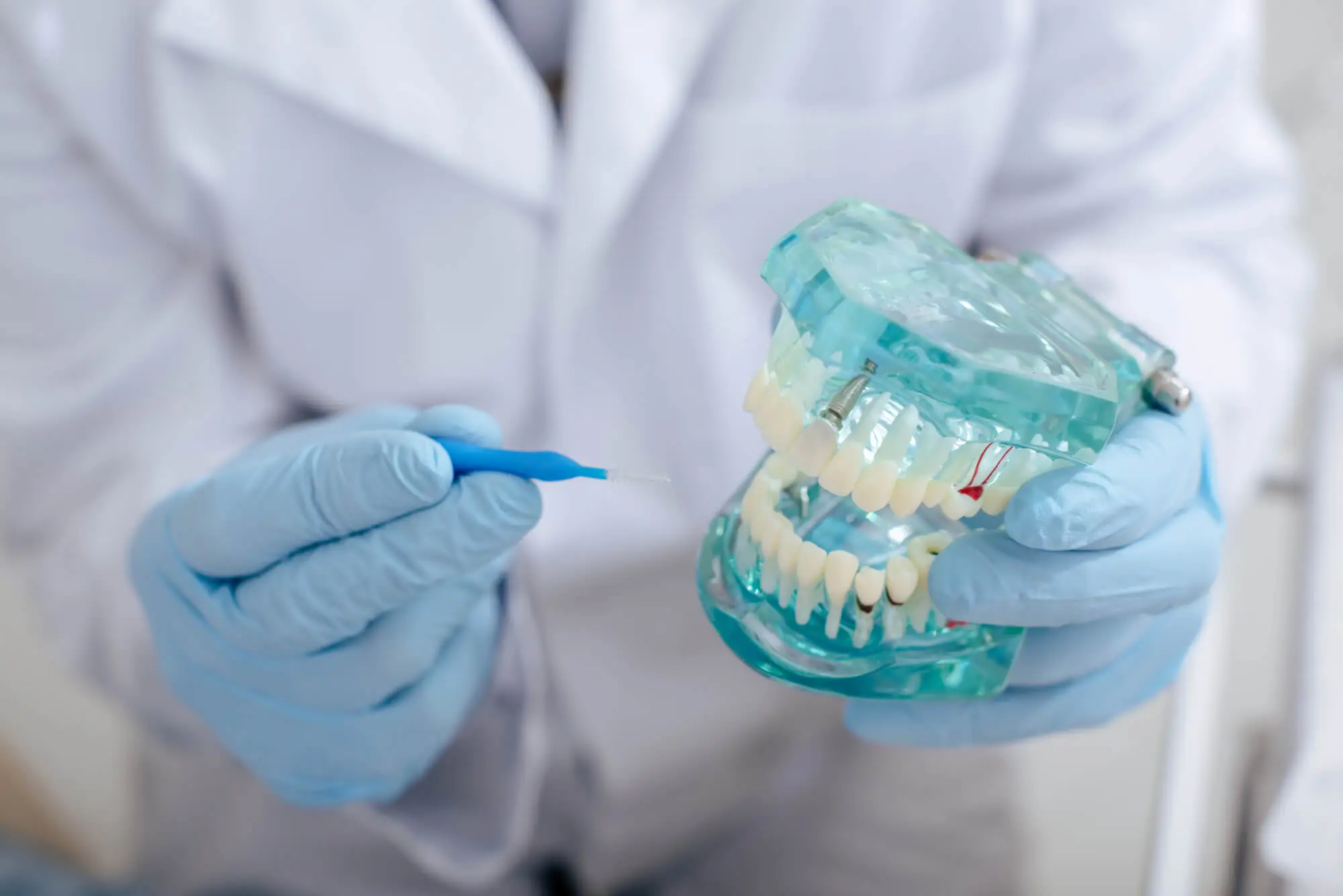
Protect Your Oral Health for Years to Come with a Dentist in Washington Heights in NYC
Regular dental cleanings are essential for preventing gum disease and tooth decay, ensuring your mouth is healthy and your smile is bright. By getting one every six months, you can keep plaque accumulation at bay, maintain your gums' health, and avoid costlier treatments.
Moreover, these frequent exams allow us to assess the state of your smile. If you’re due for a cleaning or want to learn more about this treatment, call Perfect Smile Doc!
Not Sure if You’re Covered?
Your Perfect Smile is within reach, and we're here to help you every step of the way. We can streamline the process for you by contacting your insurance company and acquiring a detailed breakdown of your specific plan information. Let us take the guesswork out of navigating insurance and payment options.
Learn More
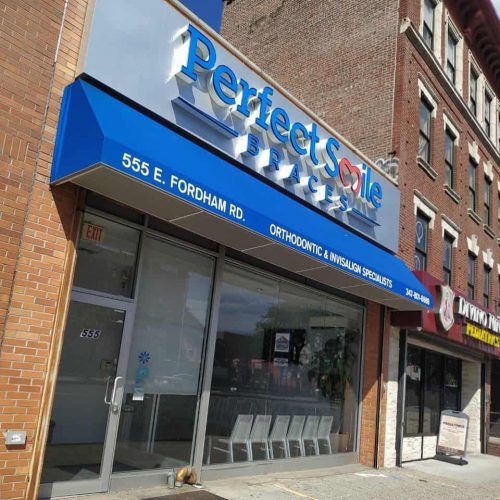
555 E FORDHAM RD BRONX, NY 10458
MONDAY TO FRIDAY 9:00 AM – 6:00 PM
SATURDAY 8:00 AM – 2:30 PM
B
D
4
Bx12
Bx12+
Bx9
Bx15
Bx17
Bx22
Bx41
Bx34 B Bx1
Bx2
BxM4
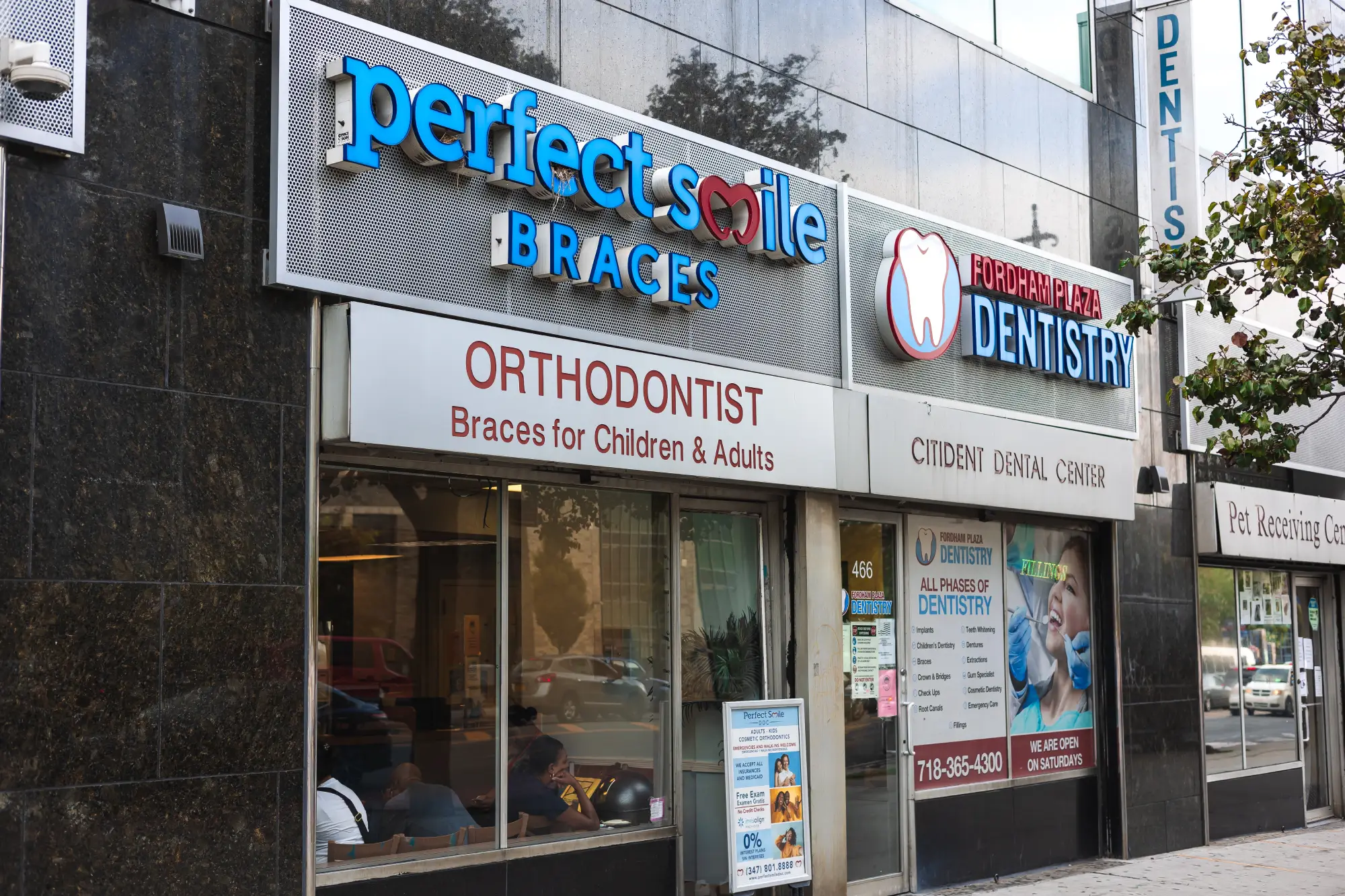
468 E FORDHAM RD BRONX, NY 10458
MONDAY TO FRIDAY 9:00 AM – 6:00 PM
SATURDAY 8:00 AM – 2:30 PM
B
D
4
Bx12
Bx12+
Bx9
Bx15
Bx17
Bx22
Bx41
Bx34
Bx1
Bx2
BxM4
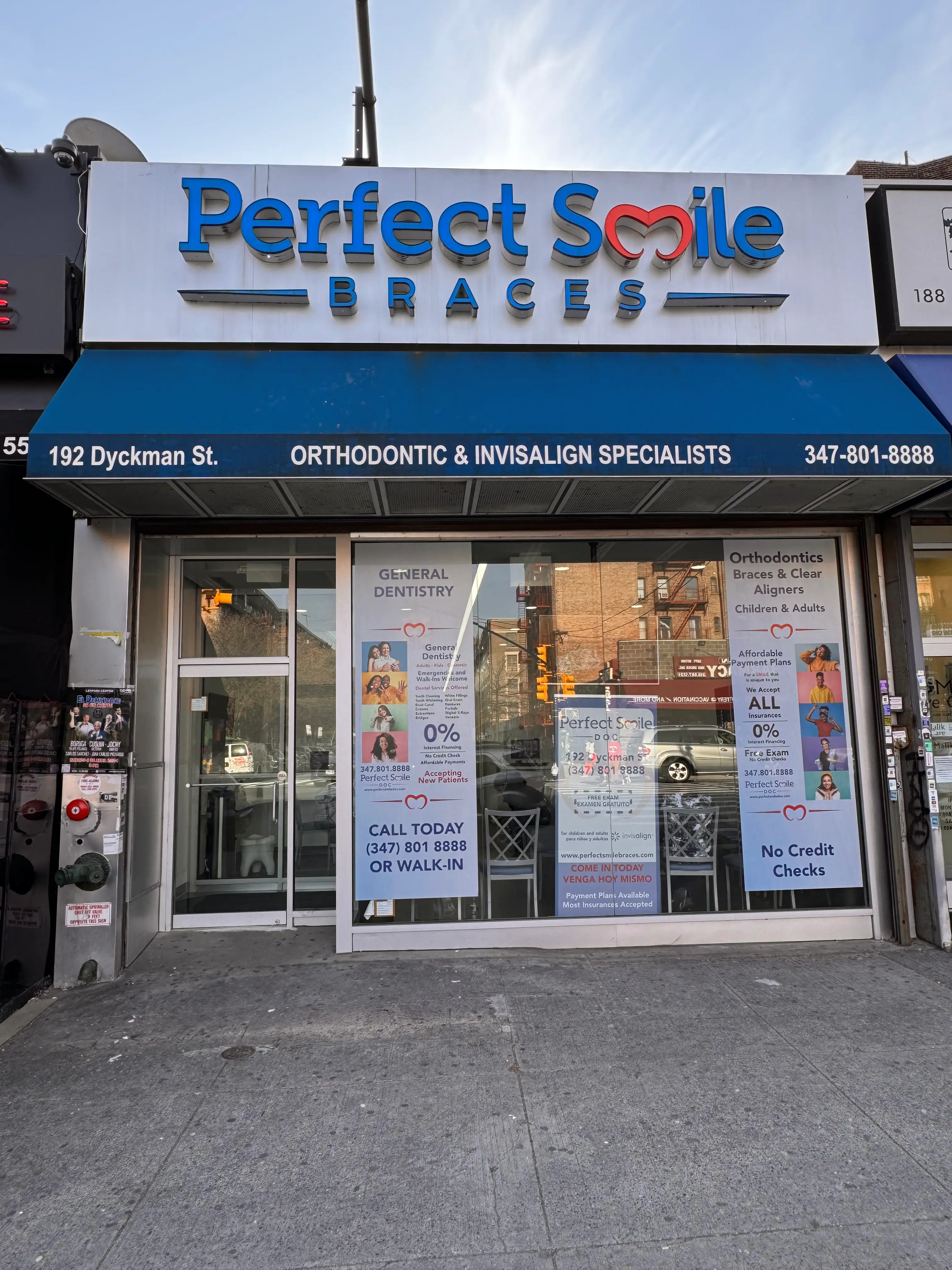
192 Dyckman St New York, NY 10040
MONDAY TO FRIDAY 9:00 AM – 6:00 PM
SATURDAY 8:00 AM – 2:30 PM
A
1
M100
Bx7
BxM1
Bx12
Bx12-SBS
Bx20
M3


